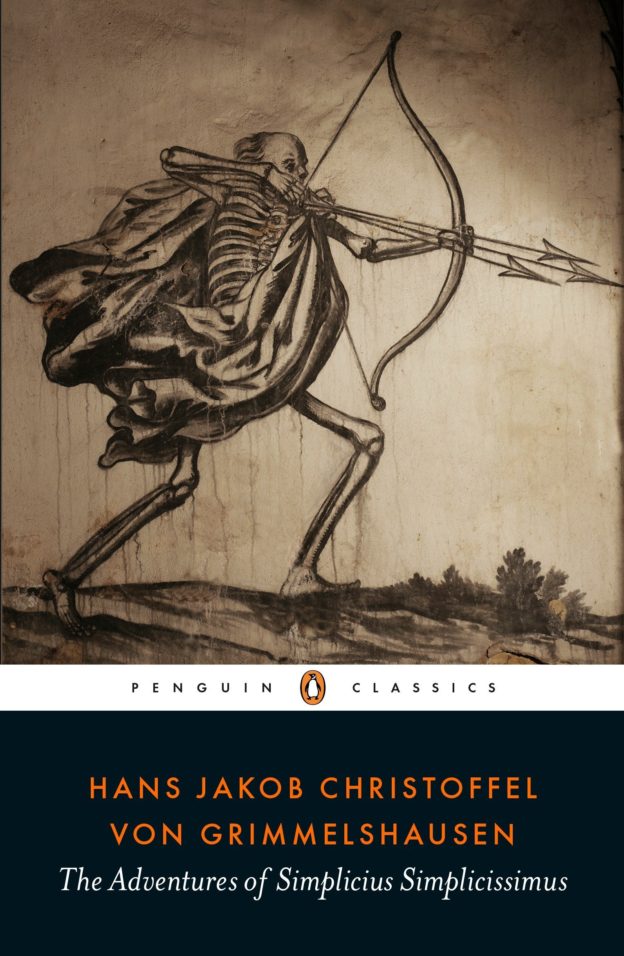Recently, I realized, as one does, that I did know as much about the Thirty Years War as I thought I should. I sought to rectify this by reading about the conflict (or as it turns out, series of conflicts) by doing some reading. Several different books were recommended, but when I found out that a classic fictional account was considered to be a realistic firsthand account of the war, I decided to read it. The Adventures of Simplicius Simplicissimus by Hans Jakob Christoffel von Grimmelshausen is a mouthful of a title/author combination, but a relatively short read. In the introductory notes in the Penguin edition (translated by J.A. Underwood), it is noted that this is a well known book in the German world. Nevertheless, my German colleagues in academia had not heard of the book (or for that matter much about the Thirty Years War as, ahem, more recent wars dominate the history the curriculum in school).
The book was a good read for me for the mundane reason that the chapters are short (typically less than 4 pages), so it was a great pre-bedtime read because I could feel like I accomplished something by reading for a few minutes. In short my episodic reading matched the episodic telling of the narrative.
The story follows the Simplicius. As a boy he runs away when a the Swedish army raids his family’s modest homestead in the Spessart, a low mountain range in Hesse and Bavaria. He lives in the woods for a period of time, is a fixture in the court of a Governor, finds himself on both sides of the war, becomes famous as the Hunstman of Soest, finds riches and loses them repeatedly, and struggles with demons both inner and outer. He also discovers who his true father is in a scene the reminded me of Bill Pullman’s character in Spaceballs. My summary cannot do the book justice, but I do think that it was worth the read.
I will admit that I did not learn much about the ins and outs and what-have-yous of the Thirty Years War. One of the most remarkable things is that it is not clear at many points what side Simplicius finds himself on. I think this is one of the biggest takeaways I had from the book. The armies that were fighting were, in a large part, separate from the people of the land they were fighting in. They raided from peasants and villagers what they could, and the armies, from either “side”, were typically equal trouble for the citizenry. Indeed, in one episode Simplicius goes to Switzerland, a land not involved in the war, and he remarks that it feels entirely different to be in a place where raids, conscription, and attack are not the order of the day.
Another takeaway I had was that the violence in the book was not as lurid as I expected. The Thirty Years War has a reputation for its bloody savagery. For sure there is violence and death to beat the band in the this book, but it is really a sidelight to the story. Perhaps that should be the most shocking thing: the violence was not the remarkable aspect of the war. The violence was almost prosaic, even a pervasive in the ambient environment. That might be the most shocking finding for modern readers.
